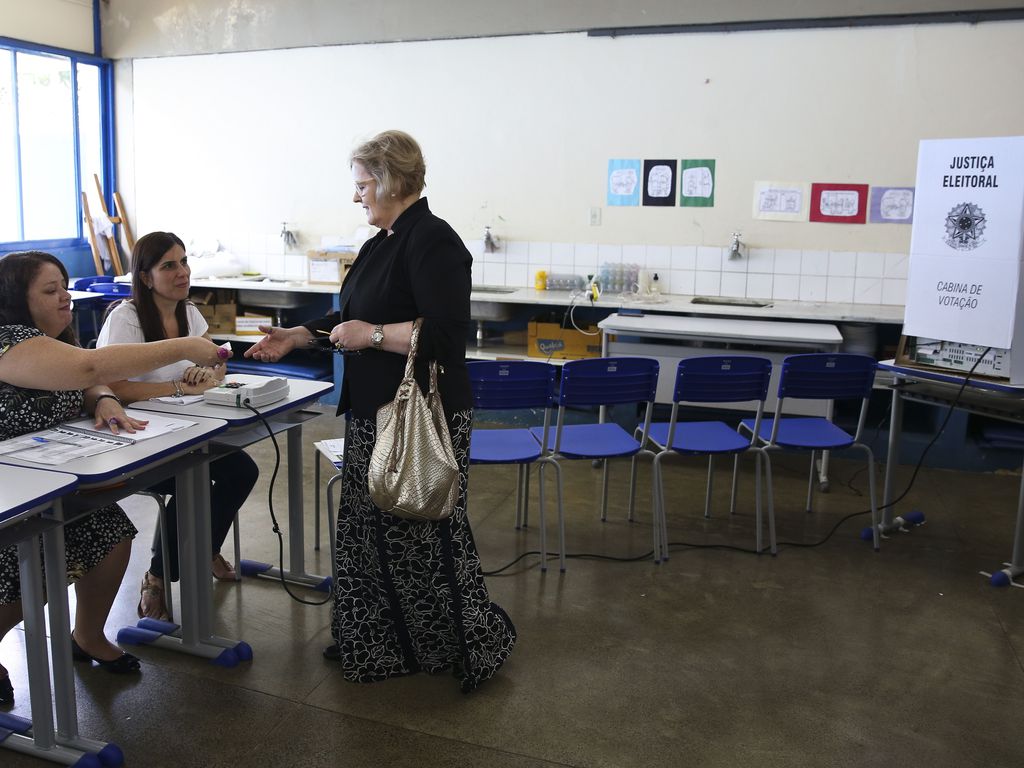ELECTIONS
Former President of the Superior Electoral Court (TSE), Minister Rosa Weber, at her electoral session in Brasília | Credit: Antonio Cruz/Agência Brasil
Electronic voting machines were introduced to the Brazilian electoral system with the aim of eliminating fraud in the vote counting process. The country had a centuries-old tradition of fraud, of the most diverse types, due to human intervention. This is the subject of the fourth episode of the series on TikTok developed by JOTA to combat disinformation in elections.
The video clarifies that after a widespread fraud in Rio de Janeiro in 1994, the Superior Electoral Court (TSE) understood that the schemes would only be resolved if the human element was completely excluded from the process. With the polls, the poll workers no longer needed to participate in the vote checking and accounting.
The electronic voting machine project began in 1995, when the TSE formed a technical committee led by researchers from the National Institute for Space Research (Inpe) and the Aerospace Technical Center (CTA) to develop the project. In the 1996 municipal elections, the equipment was used for the first time by voters in 57 Brazilian cities.
The special series produced by JOTA is sponsored by TikTok and institutionally supported by the TSE. There will be a total of 15 videos published on the digital platform.
See below the fourth content of the series on electronic voting machines:
Source: Jota
.

 Mr. Alessandro Jacob speaking about Brazilian Law on "International Bar Association" conference
Mr. Alessandro Jacob speaking about Brazilian Law on "International Bar Association" conference